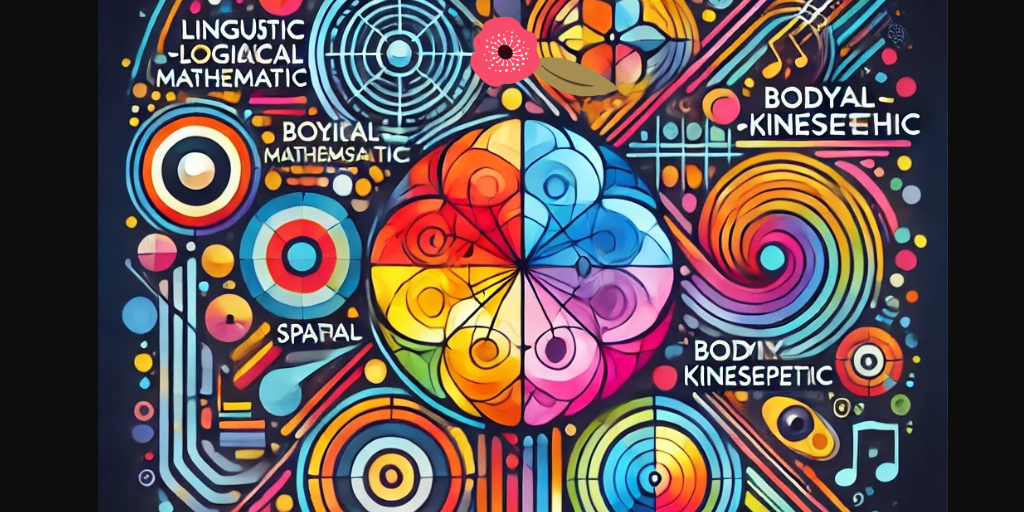For decades, intelligence was primarily defined by a single metric—IQ. However, Howard Gardner’s groundbreaking Theory of Multiple Intelligences redefined our understanding of human potential. Introduced in his 1983 book Frames of Mind, Gardner’s theory proposes that intelligence isn’t a single, general ability, but a diverse set of aptitudes that vary from one individual to another. This theory suggests that people possess different kinds of intelligence and that a high IQ score is not the sole measure of intellectual capacity.
What Are the Multiple Intelligences?
Gardner originally identified seven intelligences, later expanding his list to include two additional ones. Let’s take a closer look at these categories:
- Linguistic Intelligence
This involves sensitivity to spoken and written language, and the ability to use language to express thoughts effectively. Writers, poets, lawyers, and speakers often demonstrate high linguistic intelligence. - Logical-Mathematical Intelligence
People strong in this intelligence are skilled at abstract thinking, problem-solving, and mathematical reasoning. Mathematicians, scientists, and engineers commonly exhibit high logical-mathematical intelligence. - Spatial Intelligence
The capacity to think in three dimensions, visualize objects, and mentally manipulate them characterizes spatial intelligence. Artists, architects, and pilots often have strong spatial abilities. - Musical Intelligence
Individuals with musical intelligence have a deep understanding of rhythm, melody, and harmony. Musicians, composers, and those with a keen sense of musical patterns excel in this intelligence. - Bodily-Kinesthetic Intelligence
This intelligence enables people to use their body effectively to express ideas and emotions. Dancers, athletes, surgeons, and craftspeople frequently showcase bodily-kinesthetic intelligence. - Interpersonal Intelligence
This type of intelligence involves understanding and interacting effectively with others. People with high interpersonal intelligence tend to be empathetic and sensitive to others’ moods, often excelling in teaching, counseling, or leadership roles. - Intrapersonal Intelligence
Self-awareness, introspection, and the ability to understand one’s own emotions and motivations are central to intrapersonal intelligence. Writers, philosophers, and individuals who engage in deep self-reflection often have strong intrapersonal intelligence. - Naturalistic Intelligence
This intelligence enables a person to identify, categorize, and draw upon certain features of the environment. Those with high naturalistic intelligence might find fulfillment in roles related to nature, such as biology, environmental science, or conservation. - Existential Intelligence
Although not as universally recognized, existential intelligence involves a capacity to contemplate big questions—such as the purpose of life, death, and human existence.
Why Is Gardner’s Theory Significant?
The Multiple Intelligences Theory has made a substantial impact on education by challenging the traditional “one-size-fits-all” approach to learning. Gardner suggests that students learn best when teachers tap into their unique strengths. For example, a student with strong spatial intelligence might excel in subjects if lessons involve diagrams and visual aids. Gardner’s theory advocates a personalized approach to education, promoting diverse learning methods.
Applying Multiple Intelligences in Everyday Life
Understanding our strengths in different intelligences can help us choose fulfilling careers, cultivate hobbies, and foster personal growth. A person strong in interpersonal intelligence, for example, might pursue a career in counseling or social work, while someone with musical intelligence might find joy in composing music or playing instruments.
Criticisms and Limitations
Despite its popularity, Gardner’s theory has faced criticism. Some psychologists argue that the concept of multiple intelligences lacks empirical evidence and that “intelligences” should instead be classified as talents or abilities. However, Gardner’s theory has opened doors to broader thinking about human potential, reminding us that intelligence is multi-faceted and deeply personal.
Final Thoughts
Gardner’s Theory of Multiple Intelligences shifts our view from a narrow, IQ-focused concept of intelligence to a broader, more inclusive understanding of human abilities. This framework doesn’t just redefine intelligence—it celebrates individuality, creativity, and the diverse ways people contribute to the world. Whether or not one accepts it as a definitive model, Gardner’s theory encourages us to look beyond standardized metrics and recognize the varied strengths that each person possesses.
#MultipleIntelligences #HowardGardner #Psychology #LearningStyles #EducationalTheory






